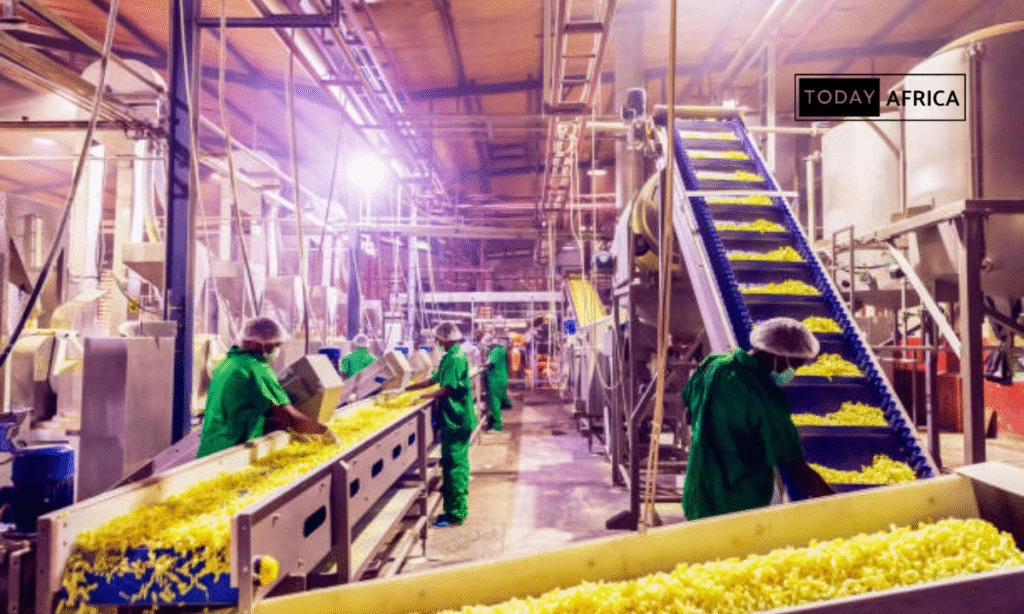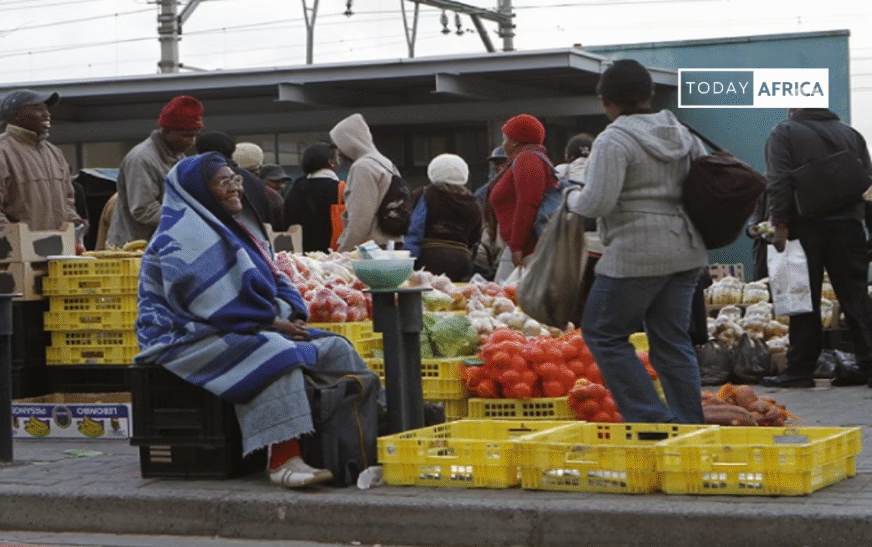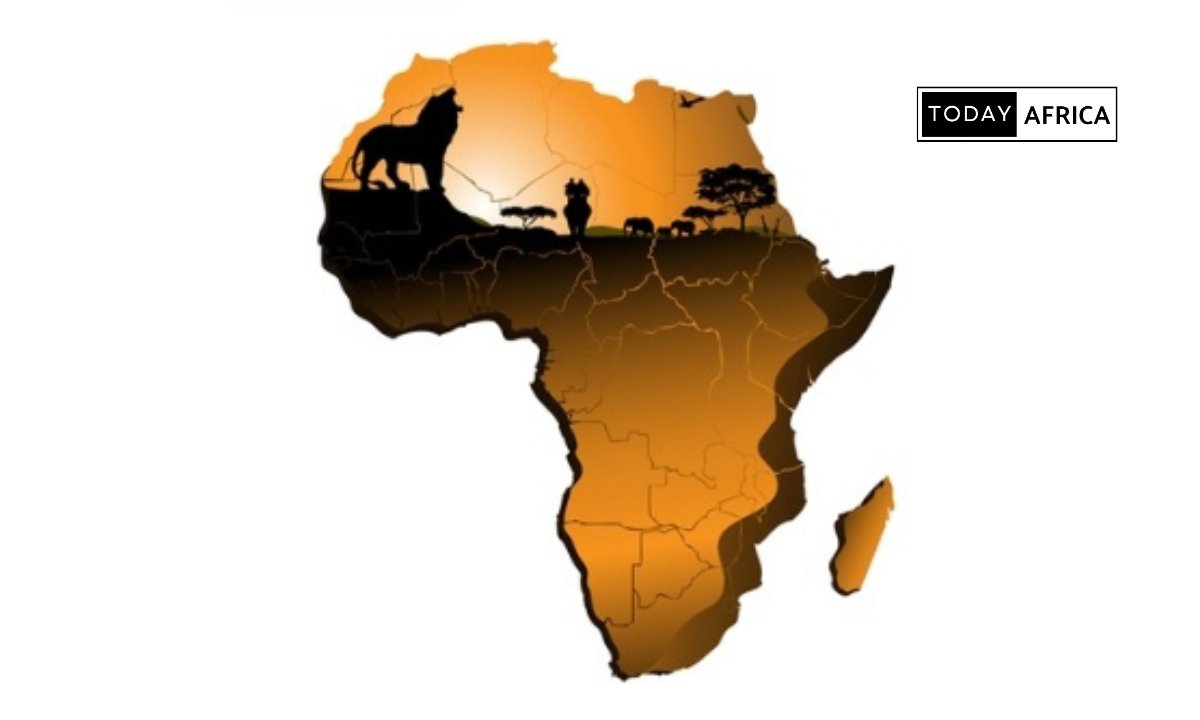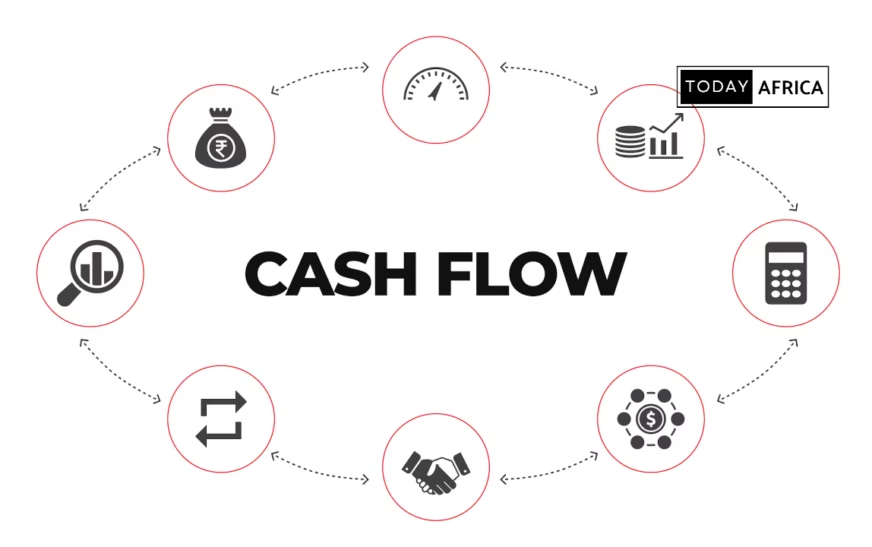If you want to understand Africa’s economic engine, don’t start with the corporate boardrooms or glass skyscrapers, but in its markets, streets, and small shops.
From open-air stalls to informal transport networks, the informal African markets employ over 80% of the continent’s workforce and contribute up to 55% of its GDP, according to the African Development Bank.
These markets are vibrant, dynamic, and resilient—but they operate differently from formal economies.
Traditional business models that work in Silicon Valley or London often fail here.
Instead, success requires adapting to the realities of informality: cash-driven transactions, trust-based relationships, fragmented supply chains, and minimal regulation.
In this post, we’ll examine business models that thrive in informal African markets, why they work, share real-life examples, and provide insights for entrepreneurs.
By the end, you’ll understand:
- The unique dynamics of informal African markets
- Proven business models adapted to local realities
- Case studies of startups and traditional businesses winning in this space
Let’s dive in.
What are Informal African Markets?
To grasp why certain business models work here and others fail, one must first understand the nature of informality itself.
Informal African markets refer to the parts of the economy where businesses operate outside of standardized regulation, corporate taxation, and formal legal frameworks.
They are not necessarily illegal; rather, they rely on community governance and simplified levies rather than full integration into state systems.
These markets are everywhere. They include:
- the sprawling open-air markets, where thousands of traders sell clothing, food, and electronics
- the informal transport systems
- and the street vendors who provide quick meals and everyday essentials.
They also include small-scale manufacturers, artisans, and service providers who run unregistered workshops and shops.
Several defining features characterize informal markets. Transactions are overwhelmingly cash-based, with little reliance on banks or digital finance, though mobile money is rapidly changing this picture.
Trust and reputation are critical, replacing formal contracts as the basis for trade. Businesses are typically small, often family-owned, and focused on survival rather than scaling.
Employment is high because entry barriers are low—anyone can start selling, driving, or hawking with minimal capital.
Despite being labeled “informal,” these markets are not disorganized. They operate under their own forms of governance. Market associations regulate pricing, mediate disputes, and enforce discipline.
Transport unions set routes and resolve conflicts among drivers. Savings groups manage financial transactions with efficiency that rivals formal banks.
This form of order, though different from formal regulation, is deeply embedded in community life.
What is a Business Model?
Before we explore which business models succeed in informal African markets, it helps to clarify what the term actually means.
A business model is the framework that explains how a business creates value for its customers, delivers that value, and captures value for itself in return. In simpler terms, it is the logic of how a business works.
Every business model has three main parts.
- Value proposition: what problem the business solves and why people should choose its product or service.
- Delivery system: the methods, partnerships, and processes the company uses to get that value to customers.
- Revenue model: how money flows back into the business, whether through one-time sales, subscriptions, commissions, or other mechanisms.
Think about M-Pesa, Kenya’s famous mobile money platform:
- Its value proposition is financial inclusion for people without access to banks.
- Its delivery system is built on mobile phone technology and a vast network of agents.
- And its revenue model is transaction fees charged for sending or withdrawing money.
Each of these elements fits together to form a business model that not only works but thrives in Africa’s informal economies.
What works in a highly formalized economy may collapse in this environment. The most successful models are those that embrace these conditions rather than fight against them.
Read Also: Founder’s Guide to Identifying Profitable Business Niches in Africa
8 Business Models that Work in Informal African Markets
1. Mobile money and digital payments
Perhaps the most transformative innovation in Africa’s informal markets has been the rise of mobile money.
Before its introduction, traders and consumers relied almost entirely on cash.
While cash is flexible and immediate, it comes with serious problems: it is vulnerable to theft, difficult to track, and limits access to credit because there is no record of transactions.
For decades, these barriers prevented millions from participating in more advanced financial services.
Mobile money platforms solved this by providing a simple way to store, send, and receive money using basic mobile phones. Kenya’s M-Pesa, launched in 2007, is the most famous example.
Today, it serves over 50 million users across Africa and has processed transactions worth billions of dollars. For informal traders, the benefits were immediate.
- A market woman could now accept digital payments from customers, reducing the risk of carrying large sums of cash.
- Families could send remittances instantly, fueling local consumption.
- Small entrepreneurs could build transaction histories that later qualified them for microloans.
The ripple effects went far beyond payments. Entire new business models became possible, from pay-as-you-go solar energy to digital micro-insurance.
Mobile money has not simply digitized transactions—it has created the financial infrastructure on which other innovations rest.

2. Pay-as-you-go services
One of the most powerful adaptations to informal economies is the pay-as-you-go, or PAYG, model.
In formal economies, many consumers can afford to pay for products in lump sums or through structured credit. But in informal African markets, incomes are irregular and often daily.
A trader may earn significantly on a market day and almost nothing the next. Asking such a customer to make a large upfront payment for a solar panel, a water tank, or even a smartphone is unrealistic.
PAYG addresses this by allowing customers to make small, incremental payments over time, usually through mobile money.
In Kenya, companies like M-KOPA and d.light have sold millions of solar home systems this way. A household makes a small deposit to take a solar kit home and then pays a few shillings daily until ownership is complete.
For families who previously relied on expensive kerosene lamps, this model provides clean, reliable energy at a cost aligned with their cash flow.
The brilliance of PAYG is that it does not force new behaviors on consumers. Instead, it mirrors the rhythms of informal economies, where daily or weekly payments are the norm.
It also builds trust gradually.
Customers are not locked into large debts; they can stop paying if they are dissatisfied.
Over time, this system not only delivers products but also creates digital credit histories, unlocking future financial services.
3. Agent and micro-franchise networks
Another common challenge in informal markets is distribution. Africa’s geography and infrastructure make it difficult for large companies to reach last-mile consumers.
Poor road networks, sprawling informal settlements, and high transport costs fragment supply chains.
The answer has often been to leverage the networks that already exist: trusted local entrepreneurs who act as agents or micro-franchisees.
Coca-Cola’s distribution model in Africa is a classic case study. Instead of attempting to deliver products directly to every kiosk, the company works with small, independent distributors known as Manual Distribution Centers (MDCs).
These entrepreneurs purchase stock in bulk and use their local knowledge and networks to distribute it to thousands of tiny shops and roadside vendors.
The result is that Coca-Cola products are available in villages where formal infrastructure barely exists.
The same principle has been adopted by mobile network operators who use agents to sell airtime and mobile money services.
See Also: SheFoundry Ltd. Partnership, and Strategic Advisors in Preparation for the AWFS 2025
4. Digital marketplaces and platform models
Marketplaces are not new to Africa; they have been central to trade for centuries. What is new is the attempt to digitalize them.
Platforms like Jumia, Konga, and Kilimall seek to bring informal vendors online, connecting them to wider pools of buyers while preserving the essence of market trade.
This transition has been uneven. While Jumia is often labeled the “Amazon of Africa,” it has struggled with profitability and adoption.
However, the experiment has highlighted an important truth: informal traders are not resistant to digital tools, but they require platforms that complement rather than replace their ways of doing business.
In Nigeria, Jumia has enabled local shopkeepers to become third-party sellers, while in Egypt, it has built systems that integrate small businesses into its supply chain.
In many cases, hybrid approaches work best. Offline collection points, cash-on-delivery options, and partnerships with local logistics providers bridge the gap between digital platforms and informal realities.
The lesson is clear: success lies in building digital tools that respect the trust-based nature of informal trade rather than attempting to formalize it overnight.
5. Asset-light transport solutions
Transportation is another sector where informal markets dominate. Across African cities, the majority of daily mobility needs are met not by formal buses or trains but by minibuses, tuk-tuks, and motorbikes.
Attempts to build asset-heavy ride-hailing fleets often fail due to high maintenance costs, regulatory challenges, and the unpredictability of demand.
Instead, the most successful models are asset-light platforms that organize existing informal providers.
Uganda’s SafeBoda offers a strong example. Rather than replacing boda-boda drivers, it trains them, provides helmets, and connects them with riders through a digital app.
The company does not own the bikes; it facilitates better service by standardizing safety and improving reliability.
In Nigeria, Gokada initially launched as a ride-hailing service but later pivoted to logistics, using its network of motorbike riders to deliver goods in Lagos’ congested streets.
Both models succeed because they enhance rather than disrupt informal transport. They recognize that drivers are not simply contractors but members of community-based transport networks.
By providing technology, branding, and training, these companies bring order and safety to a sector that would otherwise remain uncoordinated.
Read Also: 50 Low-cost Business Ideas You Can Start in Africa Today
6. Community-based microfinance
Perhaps nowhere is the ingenuity of informal markets clearer than in finance. Formal banks often avoid small traders, considering them too risky and unprofitable.
Yet across the continent, people have created their own systems of saving and lending, often through groups that rely on trust rather than collateral.
Village Savings and Loan Associations (VSLAs) are a prime example. In these groups, members contribute small amounts of money regularly, and the pooled funds are lent out to those who need it.
Repayment is enforced not by courts but by social pressure and trust. These systems have existed for decades, but in recent years fintech startups have begun digitizing them.
In East Africa, companies now provide apps that record contributions, track loans, and even connect groups to formal financial institutions.
The power of this model lies in its cultural familiarity. People are more comfortable joining savings groups with neighbors and friends than walking into a bank branch with intimidating paperwork.
By building on these traditions rather than ignoring them, microfinance initiatives have expanded access to credit in ways formal institutions could not.

7. Embedded services
Another model that has shown promise is embedding services into everyday consumer behavior.
Instead of asking customers to purchase standalone products like insurance or credit, businesses bundle them into familiar transactions.
In Ghana and Kenya, telecom companies such as MTN and Safaricom offer micro-insurance linked to airtime purchases. Customers who top up their phones automatically receive health or life coverage.
This works because it eliminates the friction of introducing an entirely new habit. Airtime purchases are already part of daily life, so embedding insurance within them ensures adoption.
Similarly, agricultural platforms embed weather insurance into the purchase of seeds or fertilizers, protecting farmers against crop failure without requiring them to sign up separately.
These models thrive because they are unobtrusive. They piggyback on existing consumer behavior and gradually introduce formal services into informal contexts.
8. Local manufacturing and import substitution
Finally, one of the most enduring models in informal African markets is local manufacturing. Imported goods often arrive at high costs due to tariffs, shipping, and currency fluctuations.
Local manufacturers who can produce affordable, culturally relevant products hold a clear advantage.
Nigeria’s Indomie noodles are a striking example. When Indomie first entered the Nigerian market, it localized production and adapted flavors to local preferences.
Today, Indomie is not just a food product; it is part of Nigeria’s culinary culture.
The company sells its noodles in sizes and price points that match informal purchasing power, and the products are distributed through countless kiosks and street vendors.
This approach has been replicated in industries ranging from textiles to beverages.
By aligning with local tastes and price sensitivities, manufacturers can thrive in informal markets where affordability and accessibility matter more than branding prestige.
Read Also: Top 10 Fastest-Growing Industries for African Entrepreneurs
Conclusion
Informal African markets are not peripheral—they are the backbone of the continent’s economic life. For too long, businesses have approached them with a mindset of replacement, assuming that formality
must eventually erase informality. The reality is more complex.
The most successful ventures have not attempted to impose external systems but have instead learned from the rhythms, trust structures, and income patterns that define daily life.
As Africa urbanizes and digital adoption accelerates, the line between informal and formal economies will blur.
Informality will not disappear; it will evolve, integrating more technology and structure while retaining its social foundations.
Entrepreneurs and investors who understand this will unlock not just profits but lasting impact.
FAQ
Why are informal African markets important?
They employ over 80% of the workforce and contribute more than half of Africa’s GDP. They are the backbone of African economies.
What challenges do businesses face in informal markets?
Key challenges include a lack of formal infrastructure, irregular incomes, cash dependency, and fragmented distribution systems.
What business models work best in informal African markets?
Proven models include mobile money, pay-as-you-go services, agent networks, microfinance, digital marketplaces, and embedded services.
How can digital technology support informal markets?
Digital tools like mobile money, e-commerce, and fintech solutions help increase transparency, access, and efficiency.
Are informal markets a long-term opportunity?
Yes. As Africa urbanizes, these markets will continue evolving and integrating with formal economies, creating opportunities for scalable, sustainable ventures.
Leave a comment and follow us on social media for more tips:
- Facebook: Today Africa
- Instagram: Today Africa
- Twitter: Today Africa
- LinkedIn: Today Africa
- YouTube: Today Africa Studio
















